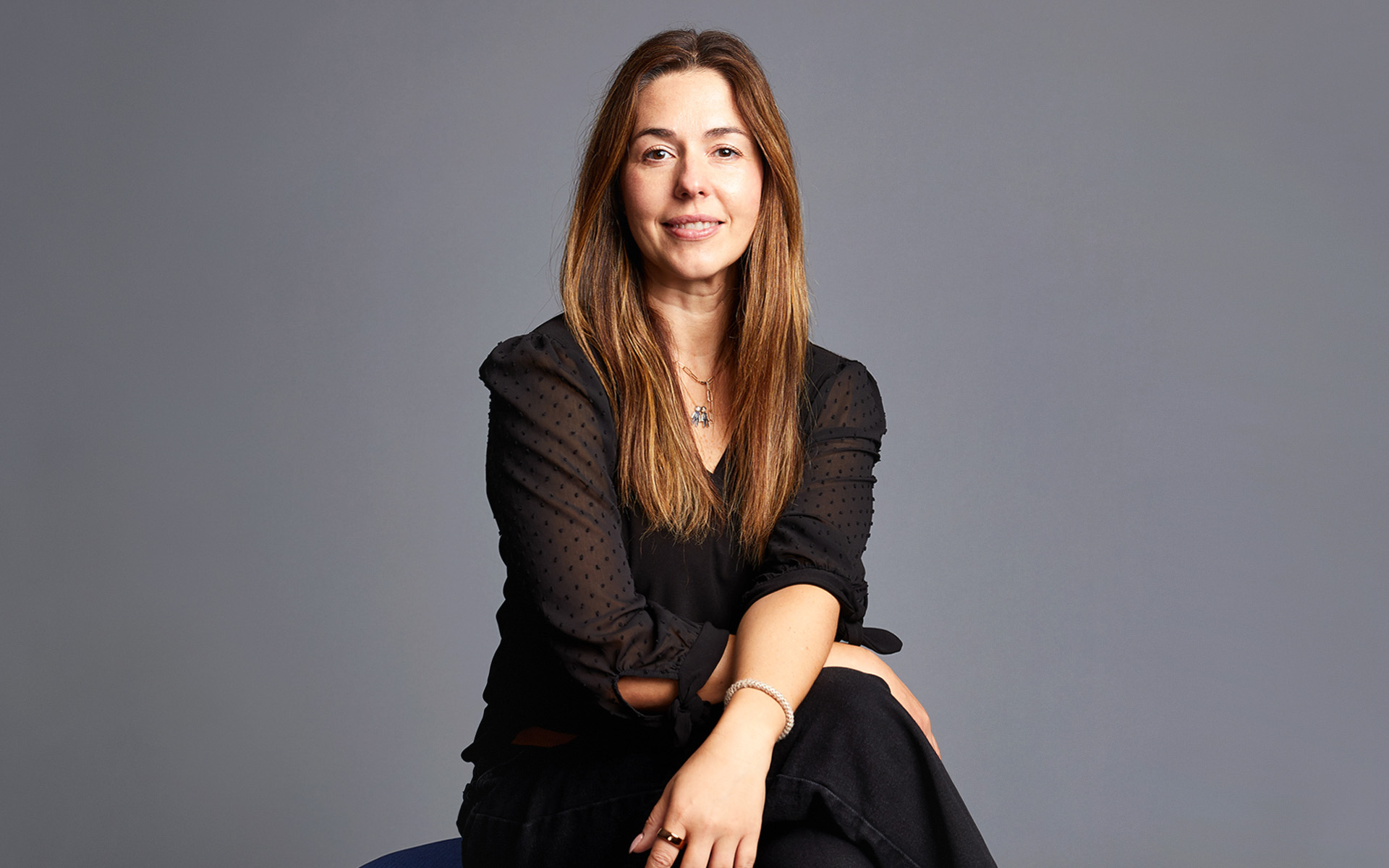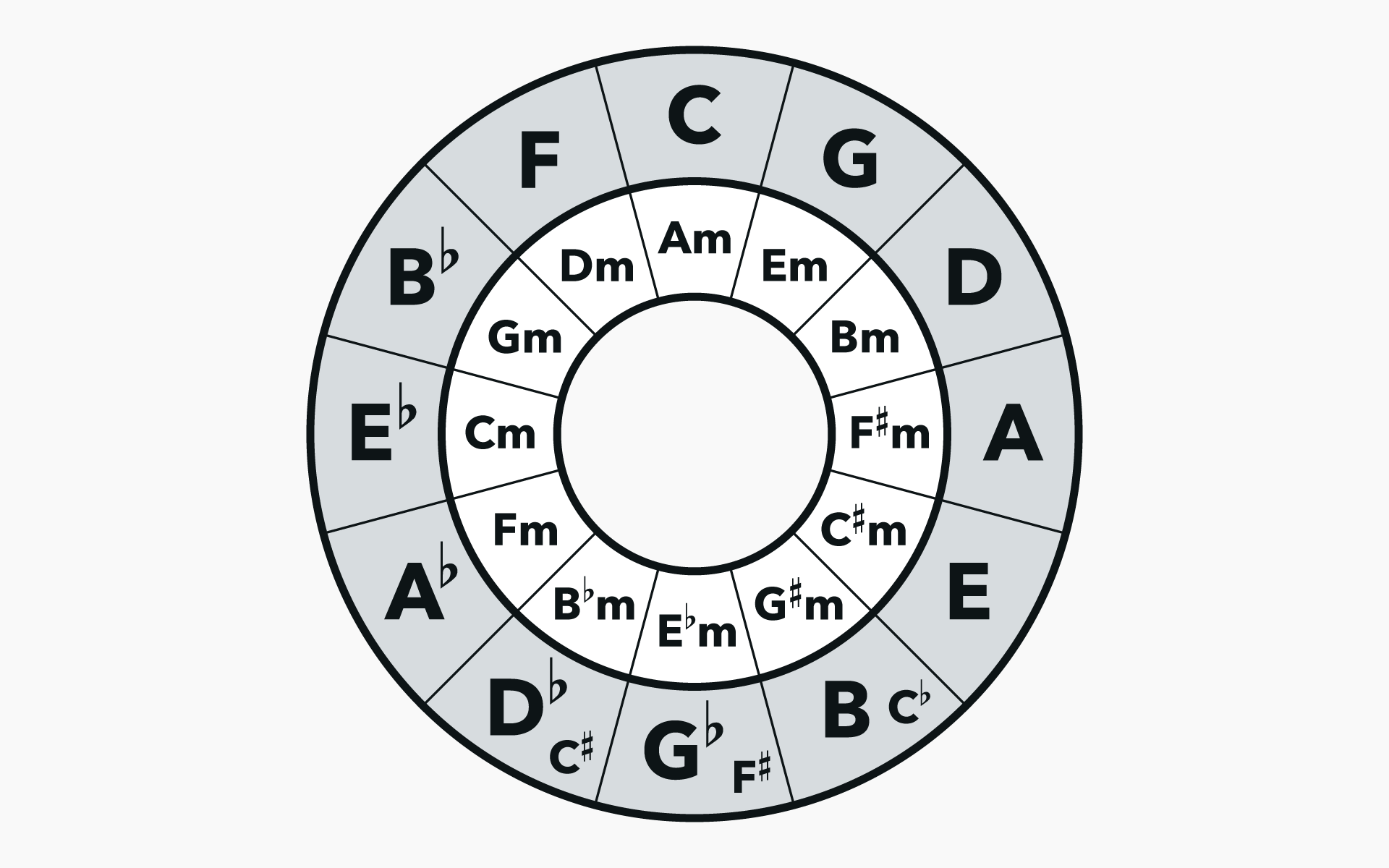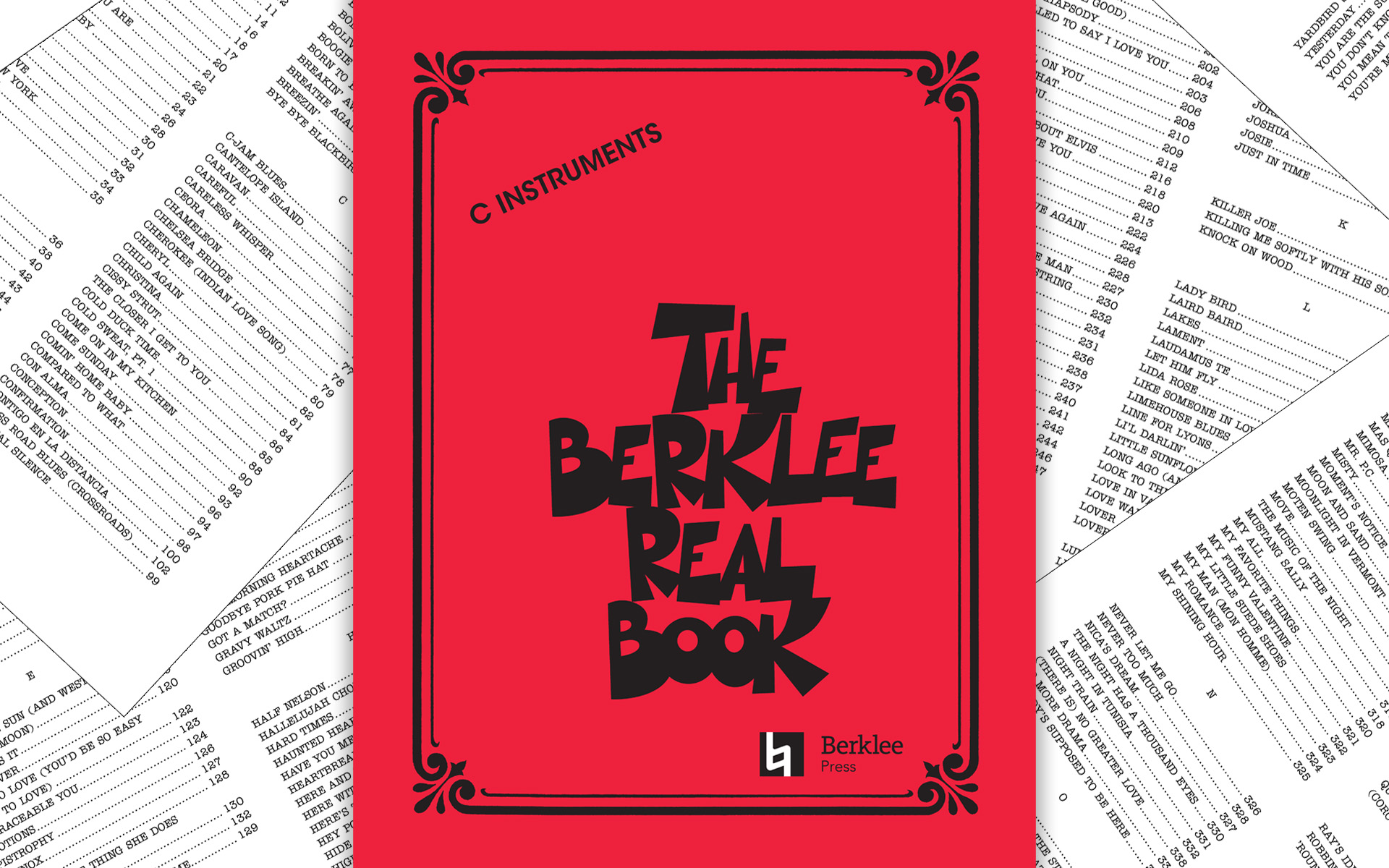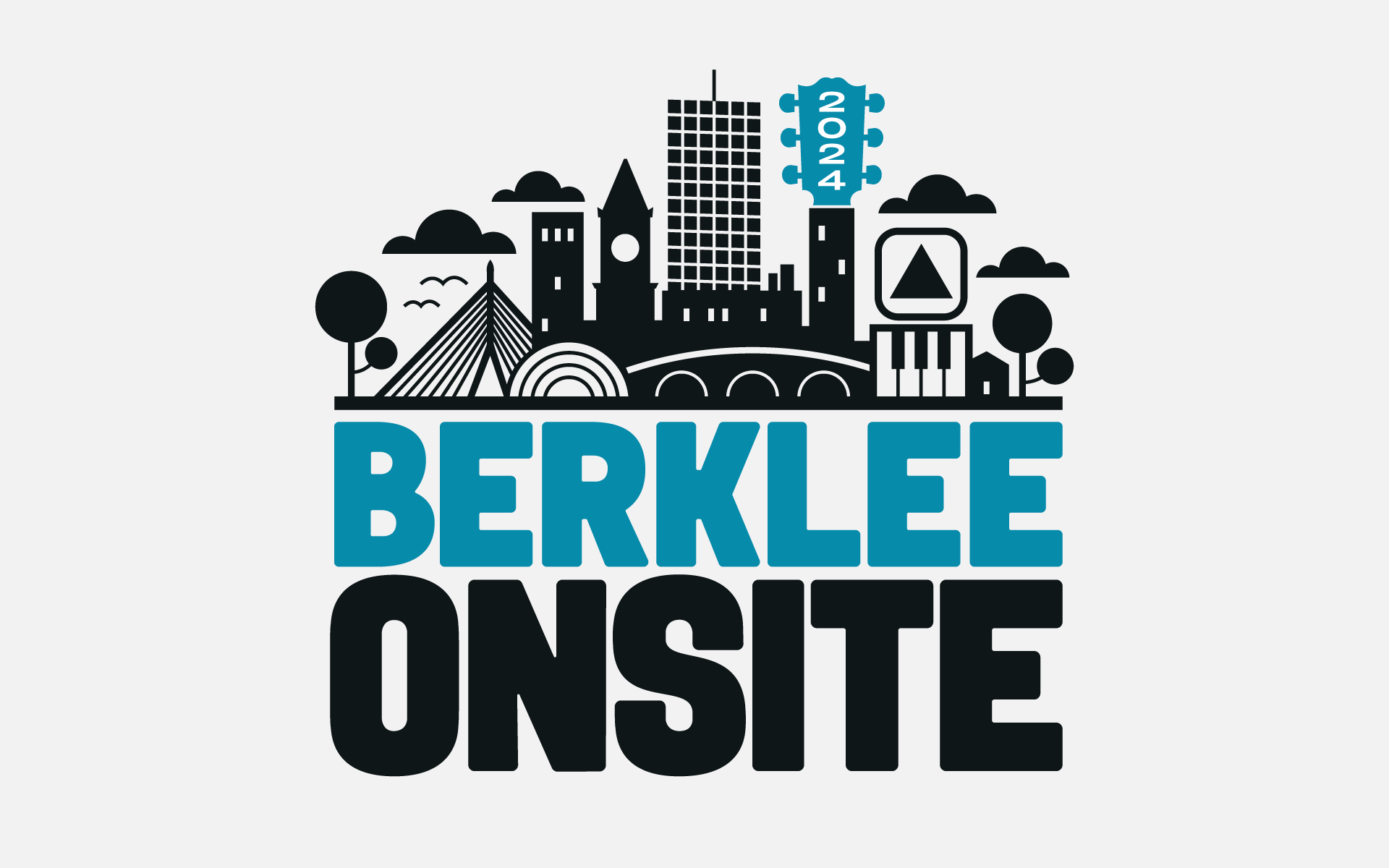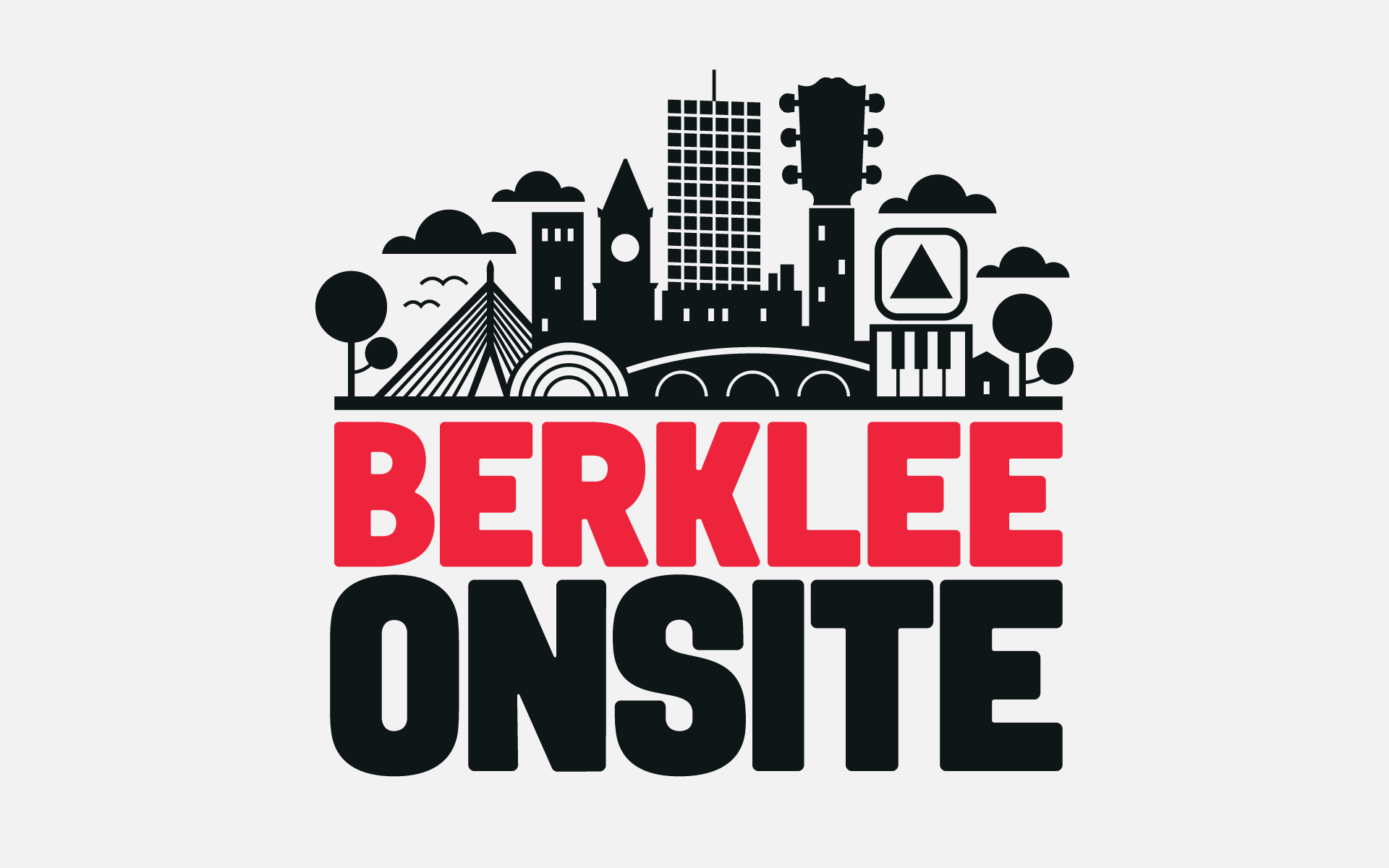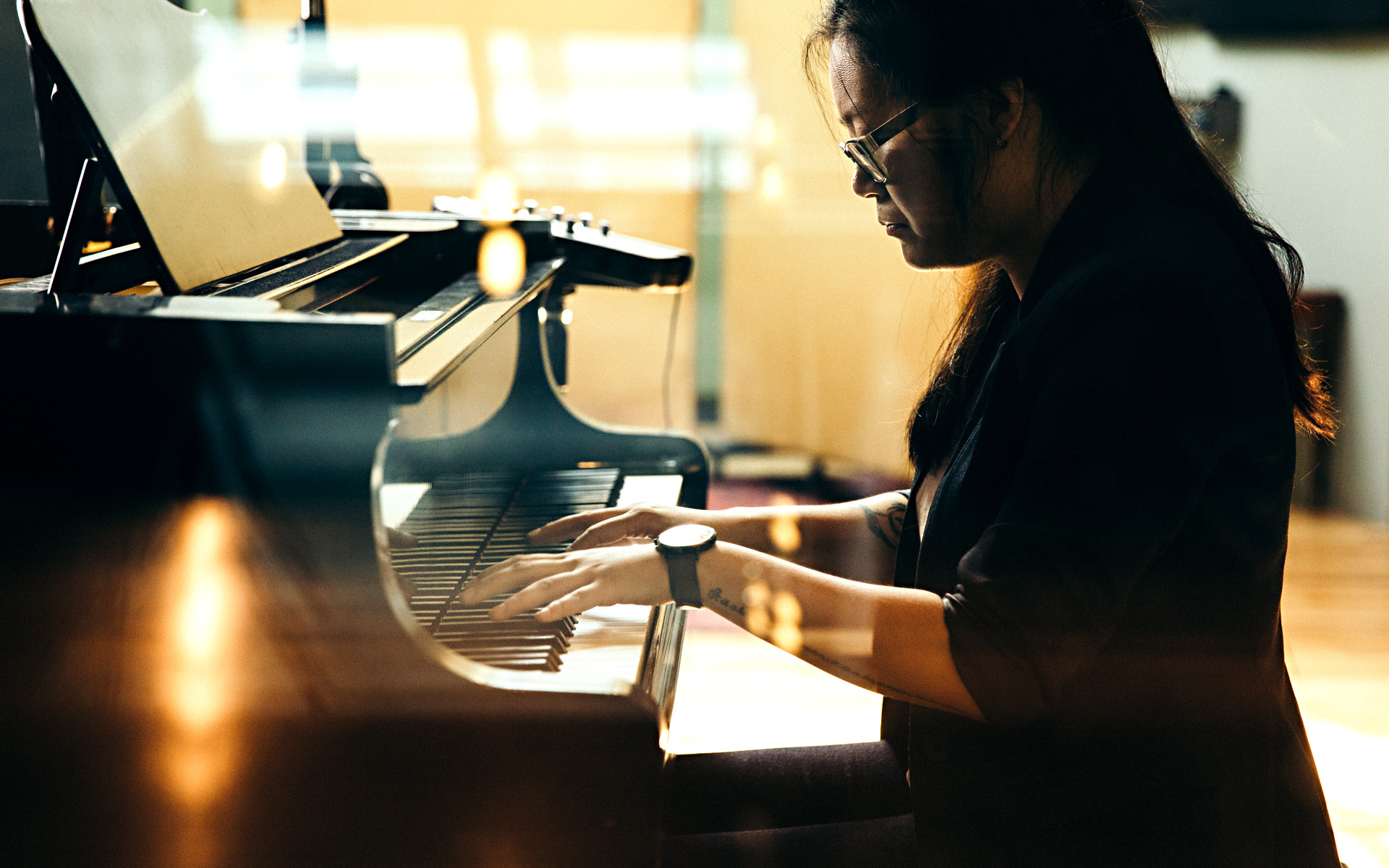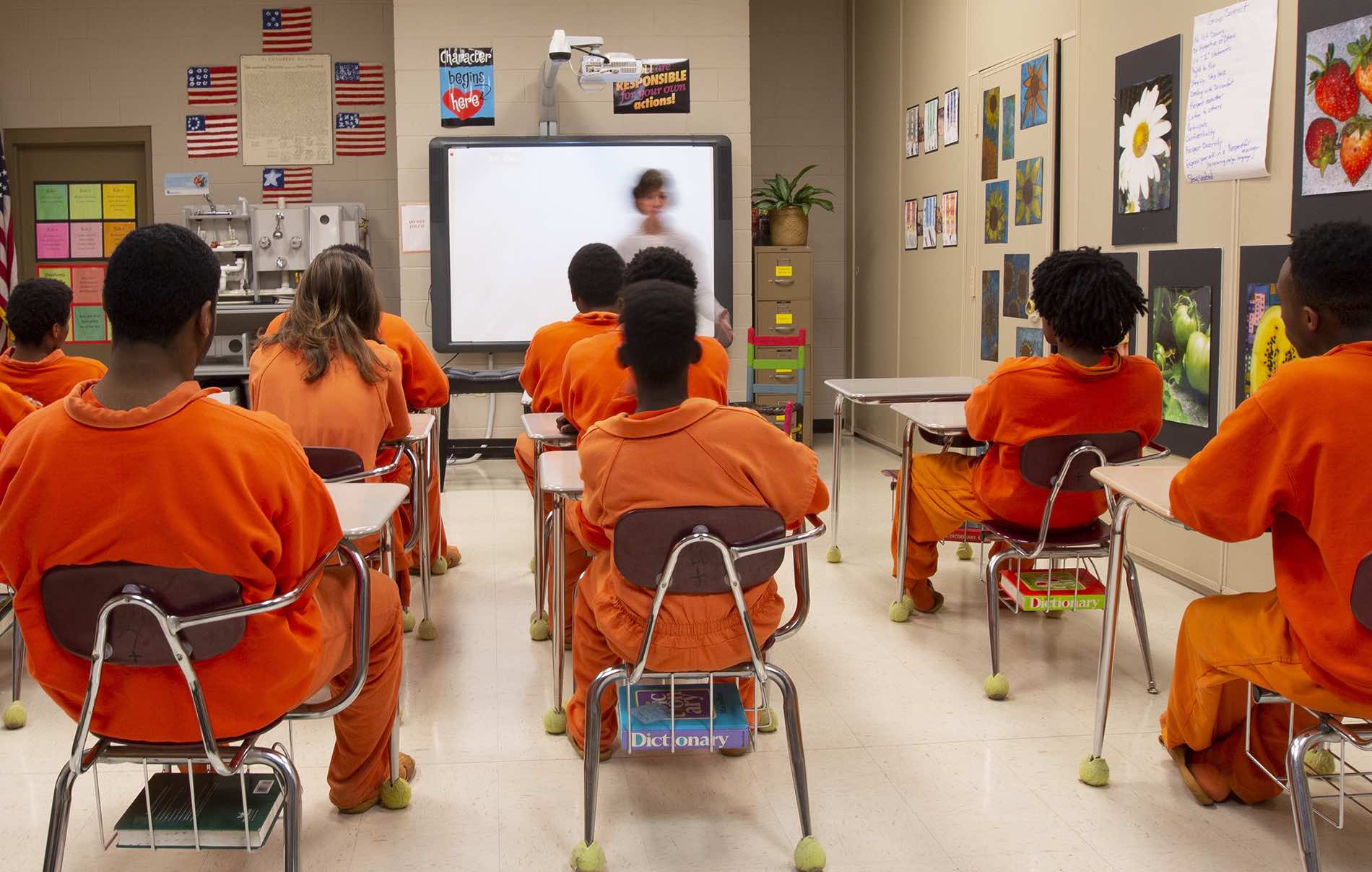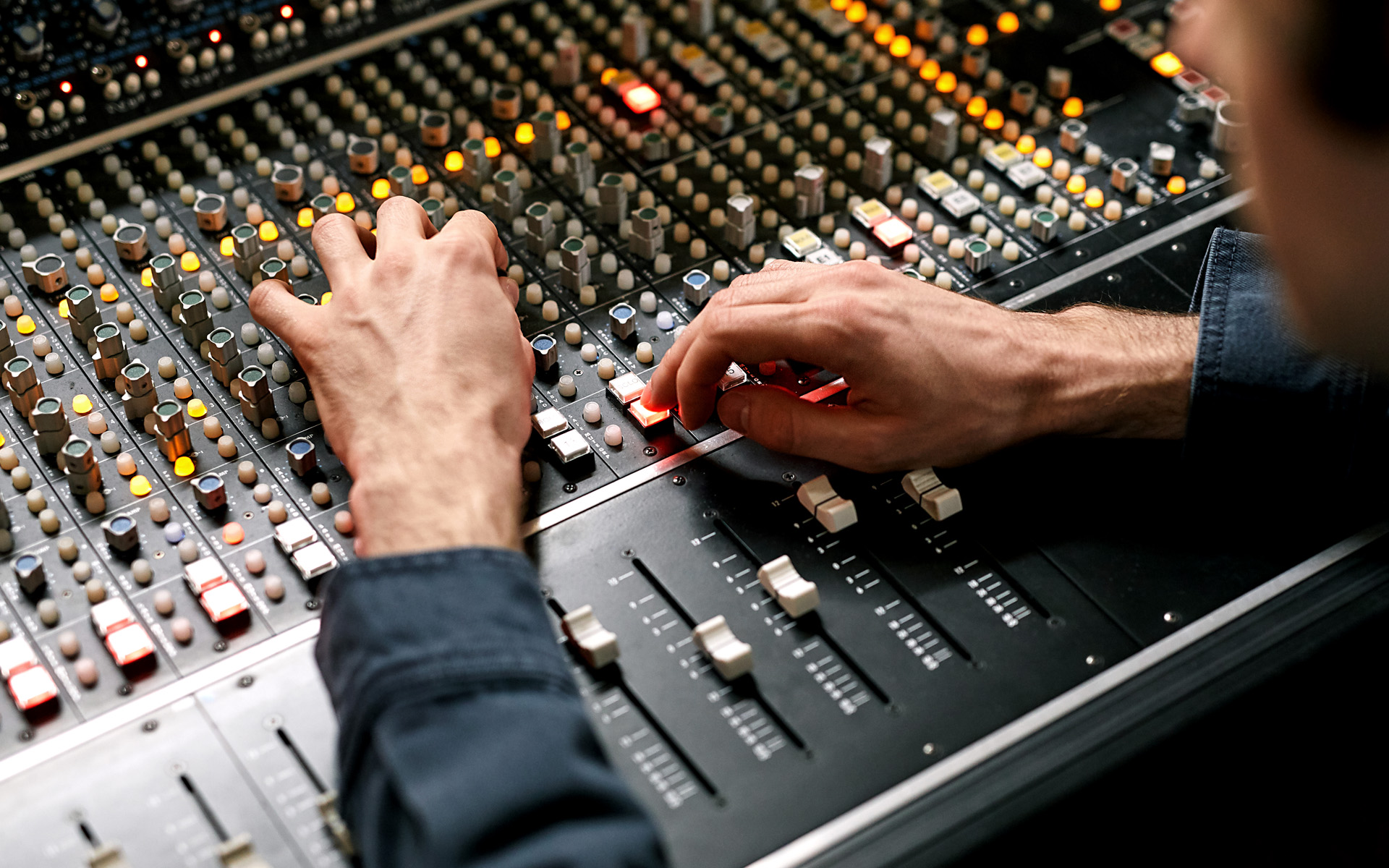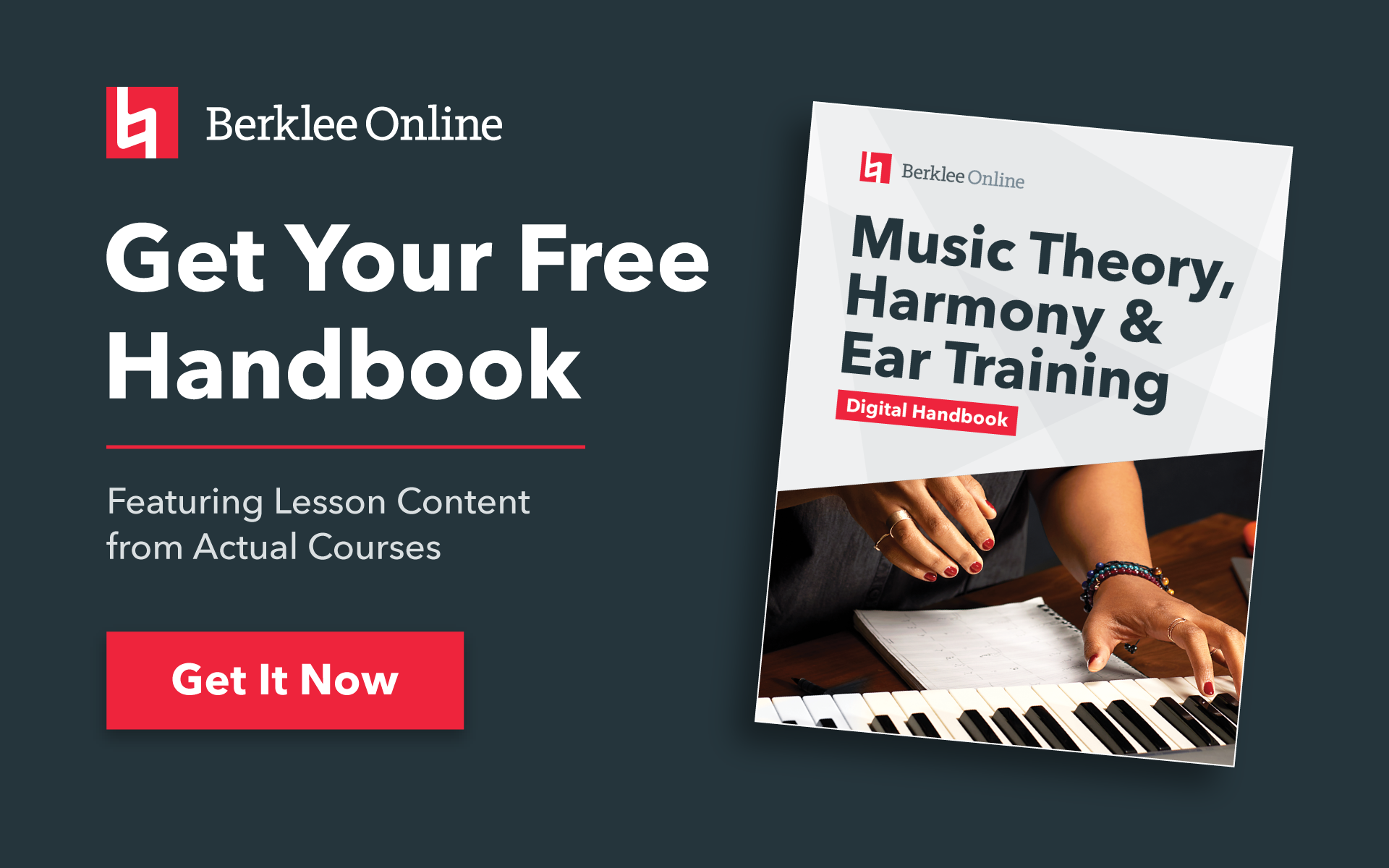In February 2025, Berklee Press will release the much-anticipated Berklee Real Book, a curated collection of more than 300 songs that are staples for gigging musicians and a snapshot of the music that resonates across the Boston campus of Berklee College of Music.
“Berklee is the world’s leader in contemporary music education,” says Berklee Online CEO and co-founder, Debbie Cavalier, who has been overseeing Berklee Press since 1998. “It’s only fitting that Berklee’s performance division curated this diverse collection of popular music for aspiring musicians for generations to come.”
What’s a Real Book?
A Real Book is a carefully curated collection of lead sheets—musical shorthand for jazz and popular tunes—that musicians use to perform, study, and improvise. This new volume honors Berklee’s commitment to contemporary music education, showcasing a diverse array of musical styles rooted in the African diaspora while embracing global traditions.
“We’ve got a lot of tunes that aren’t here because they’re the most popular, but because they’re ideal for musicians learning to improvise,” says Jonathan Feist, editor-in-chief of Berklee Press. “Some are relatively new to us [at Berklee], but most have been ringing in the Berklee campus hallways for decades, from songwriting classes to practice rooms to the Berklee Performance Center.”
Licensing Songs for the Real Book
The repertoire was carefully selected based on extensive surveys of Berklee faculty and department chairs, reflecting the songs most commonly taught and performed on campus. Feist describes the process as both intricate and rewarding.
“We surveyed hundreds of faculty members, compiling a database of nearly 900 songs,” he explains. “The final list prioritizes tunes that are widely used in high-enrollment classes and ensembles.”
Many of the selections feature educational insights from Berklee faculty about what makes these songs so worthy of study. For instance, Sarah McLachlan’s “Adia” features a note to learners that it’s a good “example of an odd number of lines in varying sections.” John Coltrane’s “The Night Has a Thousand Eyes” includes the following note: “Extended form standard usually played with transitions between Latin jazz and swing.”
A Glance at Some of the Berklee Real Book Notes
Click on an image to zoom in and view the instructor notes on select songs.



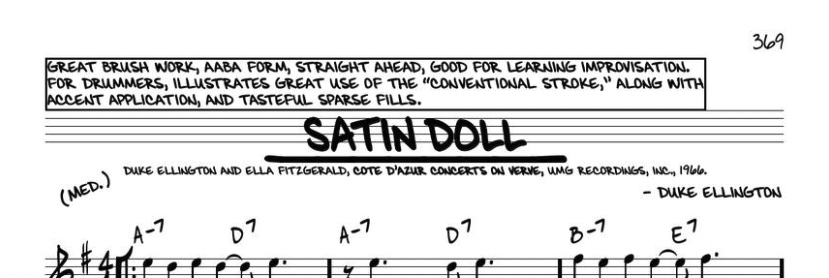


Berklee College of Music Dean of the Professional Performance Division Sean Skeete helped Feist with the selection process.
“We aimed to represent the songs that were heavily used for educational purposes within the community,” says Skeete. “The selections reflect what students should know, what faculty are using, and a diverse range of styles you might not typically find in one volume. Going through these tunes will prepare them for their careers as musicians.”
This project was realized through Berklee’s long-standing music publishing partnership with Hal Leonard LLC, which legally licensed every song in the collection.
“Hal Leonard achieved what I can only describe as an administrative miracle of print music licensing,” says Feist.
The History of the Real Book at Berklee
The Berklee Real Book also represents a full-circle moment in Berklee’s history. The original Real Book itself began at Berklee in the 1970s as an underground project by students who compiled and sold unlicensed lead sheets of bebop and jazz standards. Dubbed “The Real Book” as a nod to earlier “fake books,” its handwritten font and improved accuracy made it a must-have for musicians, even as it operated outside copyright laws. In 2004, Hal Leonard legitimized the series, securing copyrights and expanding the repertoire while preserving the iconic style of the original volumes.
“When I was a student, in some ways, the Real Book was looked upon as the ‘sacred text’ for an up-and-coming jazz musician,” remembers Berklee College of Music Executive Director Ron Savage, who graduated from Berklee in 1984.
Berklee’s Commitment to Diversity in Music Education
Notably, this project follows the publication of Terri Lyne Carrington’s groundbreaking New Standards: 101 Lead Sheets by Women Composers. Curated by the Berklee Institute of Jazz and Gender Justice, the 101 songs Carrington selected address the historic underrepresentation of women composers in Real Books. Her songbook features compositions from legends like Mary Lou Williams, Alice Coltrane, and Lil Hardin Armstrong, as well as emerging voices from Berklee’s own faculty and students.
Carrington’s work exemplifies Berklee’s ongoing commitment to shaping a more inclusive musical landscape—a philosophy that also underpins the Berklee Real Book. While New Standards expands the canon with a focus on gender equity, the Berklee Real Book seeks to reflect the broad diversity of Berklee’s contemporary curriculum. Together, these collections offer a richer and more representative view of the music that shapes Berklee’s unique approach to education.
This evolution is evident in the Berklee Real Book’s eclectic repertoire. From Dolly Parton and Alicia Keys to John Coltrane and Antonio Carlos Jobim, the Berklee Real Book spans centuries and genres, offering students a robust and dynamic learning tool. As Feist puts it: “It’s kind of like dipping your toe into a Berklee river, and it’s a subjective list, but what emerges are musical works that are evergreen and worthy of serious academic study.”
Savage says the two recent books complement each other well.
“New Standards and the Berklee Real Book combine to usher in a new era of music education,” he says, “an era that more fully represents the music of the current generation and those artists who made it great!”

